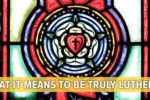 |
March 5–March 11
Psalm 55: “Everything in this psalm fits with the time of Absalom’s conspiracy. . . . David repeats his confidence that the Lord will deliver him. Verse 22 is well known and often memorized because it is a general statement of God’s care that can be applied in almost any circumstance. This psalm, like many of the other psalms of David, teaches us to trust in the Lord in any adversity and to remain confident that God will judge the wicked” (PBP 1, pages 225,227).
Psalm 56: “David’s double expression of confidence contains some beautiful phrases that apply to almost any danger. The words ‘When I am afraid, I will trust in you’ are a fitting prayer in sickness, in storms, in war, in persecution, and in any other danger. When it seems that we are alone in our sorrows, what a comfort to know that God has counted and kept a record of our every tear. If we trust in the Lord, why should we be afraid of what man can do to us?” (PBP 1, pages 229,230).
Psalm 57: “The psalmist compares God’s protecting power to the sheltering wings of a mother bird protecting her babies. . . . The figure of wings conveys the impression of both soaring majesty and power as well as intimate shelter. . . . A noteworthy feature of these descriptions is the exclamation of praise that separates the two pictures of the enemy. Even in the midst of distress, David thinks of the glory of God. These thoughts change his distressed heart to a steadfast heart” (PBP 1, pages 231,232).
Psalm 58: “Even corrupt rulers are ministers of God who are his representatives on earth. . . . The judgment against such corrupt rulers will be especially severe, because they are God’s servants who have the responsibility to punish evil and reward good. It is an abomination when rulers do the opposite, punishing the innocent and protecting the wicked. . . . Corrupt rulers are so common in the world that we may think that such corruption is normal. . . . The God who distinguishes right from wrong cannot let their wickedness pass unnoticed” (COP 1, pages 555,556).
Psalm 59: “The harshness of David’s descriptions of the enemies as a pack of snarling dogs is not surprising since these men stooped so low as to attack him in his own home under cover of darkness and even expected his wife to help them. . . . David’s reference to ‘the ends of the earth’ expands the application of this psalm from the experiences of David’s early life that motivated him to write the psalm to the experiences of believers throughout the world until the end of time. The same principles of judgment and justice that applied to God’s dealings with Saul and his cronies apply to all evildoers and persecutors of all time” (PBP 1, pages 237,239).
For further reading, see 1 Samuel 19.
Psalm 60: “When we are distressed by present affliction, we should follow David’s example of reviewing God’s past help. The second half of Romans 8 provides us with a New Testament example of this practice. . . . This psalm reminds us that in days of disappointment and reverses, we should look to God’s past record, which assures us of present and future victory. The promises he has fulfilled in the past assure us that his promises for the future will come true as well” (COP 1, pages 572,573).
March 12–18
Psalm 61: “David is confident that God, who has been his refuge and tower in the past, will deliver him again. He renounces trust in his own power when he confesses that God is the rock who is higher than he is. God will raise him up to a place of shelter that David could not reach on his own. . . . David’s prayer for the king reaches beyond David himself, beyond Solomon and all the other members of the dynasty, to King Messiah, that is, to Christ and his eternal kingdom. . . . The opening verses of this psalm would be an appropriate prayer for a soldier or anyone else in danger far from home. . . . Far from home, we too must trust in the rock that is higher than we are” (COP 1, pages 576-578).
Psalm 62: “ ‘My Refuge is God.’ Not only shall I expect good from him, but under his protection I shall bid defiance to every adversity; for I am confident that he will not forsake me. Men will always forsake you, and refuge with them is never certain. . . . Strength fades, courage fails; God remains firm. In times of adversity and in times of prosperity, therefore you may depend on God. If you are lacking something, well, here is good advice: ‘Pour out your heart before him.’ Voice your complaint freely and do not conceal anything from him. . . . Do not dribble your requests before him” (LW Vol. 14, pages 237,238).
Psalm 63: “Believers pore over God’s Word in the same way a young man or young woman might pore over the love letters he or she has received from an absent lover. Believers think about God the way we think about absent loved ones. They long for reunion. If they are separated from their place of worship by travels or by war, they long to return. . . . This is one of the most intensely emotional of David’s psalms and one of the most beautiful. . . . The beautiful picture of being sheltered beneath God’s wings is a common one in Scripture and in Psalms” (COP 1, pages 585,586).
Psalm 64: “This psalm, which has no specific historical setting, serves as a summary or review of all of David’s many prayers against his enemies. . . . All the familiar elements of David’s prayers against his enemies are here: an opening plea; a description of the treachery, viciousness, and arrogance of the enemy; a claim of innocence on the part of the persecuted; an assurance of God’s victory; and the thankfulness of the righteous. . . . These words are an apt summary of the schemes of sinners of every time and place. . . . The devious methods of the ungodly contrast with the open expressions of the truth which characterize God’s people. In spite of such schemes, the upright in heart will live to praise the Lord. No matter what Satan and his associates plan, God’s people will be kept safe” (COP 1, pages 588, 592, 593).
Psalm 65: “These words (verses 3,4) express the joy we find in the festivals we celebrate with our fellow Christians in our churches. The richest fulfillment of these words will come when we are gathered together as one congregation in the festival of eternal life. The mention of forgiveness is fitting in a festival song, because without forgiveness we would have nothing to celebrate and could not come into God’s presence. . . . Through the rain our Father sends, he richly provides our daily bread. All creation rejoices in his blessings. This beautiful description of the rain and its blessings reminds us to praise the bountiful God who gives them all” (PBP 1, pages 252,254).
Psalm 66: “Psalm 66 focuses on God’s awesome deeds by which he delivered his people Israel from Egypt [and throughout Israel’s history]. However, it is general enough to apply to all of the awesome deeds by which God delivers his people. . . . It may also be applied to all trials of God’s people, since the exodus is a type and pattern of all of God’s acts of deliverance” (PBP 1, pages 254,255).
March 19–25
Psalm 67: “[We] pray that all people may experience the same grace and blessing that God placed upon his people Israel in the benediction he gave to Moses and Aaron. . . . When God is gracious to us and blesses us, we want to share his Word with all people. Our praise of God will lead others to praise him. God’s blessings to us will be a source of blessing to others. If we joyfully praise God and tell the nations of his righteousness, the earth will yield a rich harvest of souls won for Christ and for eternal life” (PBP 1, pages 258,259).
Psalm 68: “Psalm 68 describes a procession of God from Mount Sinai, the place where the ark of the covenant was constructed, to the temple on Mount Zion in Jerusalem, the place where the ark found its home. . . . This ‘ascension’ to Zion, great as it was, was just a pointer to a greater ascension. . . . Christ’s ascension marks the completion of God’s conquest of the earth. Christ has defeated and subjected sin, death, and Satan. Christ now has all power in heaven and in earth. He is King of kings and Lord of lords. . . . He give us gifts that enable us to join him in the work of bringing people into his kingdom. We do this by announcing Christ’s victory to them. Christ, therefore, gives us his Word to proclaim” (COP 1, pages 611,624,625).
Psalm 69: “Only Psalm 22 matches Psalm 69 as a graphic prophetic description of Christ’s suffering. . . . In the Old Testament, raging floodwaters and deep mud often symbolize troubles too difficult for the believer to overcome himself or herself. Here they symbolize the overwhelming burden of our sin and the depths of suffering which Christ endured because of it. . . . Christ, though he had committed no sin, was indeed a sinner before the judgment of God. Paul says, ‘God made him who had no sin to be sin for us.’ . . . The references to bitter gall and vinegar to drink in Matthew 27:34 and 48 point to the fulfillment of this psalm during the suffering of Christ. . . . [His enemies] were afflicting Christ for their own malicious purposes. . . . Because they blasphemously and defiantly rejected the only payment for sin, nothing remained for them but the curse of this psalm” (COP 1, pages 632,634,636,643,645).
For further reading, see Hebrews 10:29-31.
Psalm 70: “This psalm is nearly identical to the conclusion of Psalm 40. . . . It seems significant that [it is] placed after Psalm 69, which is also a messianic psalm. . . . The prayer is marked by urgency and simplicity. . . . Because it is so lacking in details and specific circumstances, it is applicable to any time of oppression or danger” (PBP 1, pages 278,279).
Psalm 71: “This is a beautiful prayer for every Christian, but especially for aged Christians. . . . The last years of life are often difficult for Christians today, just as they were for David. The pains and weaknesses of old age often make Christians eager or even impatient to leave this life. But if God leaves us here only to declare his goodness, which we have experienced through a lifetime, that is reason enough for us to be here” (PBP 1, pages 283).
Psalm 72: “Only Christ, great David’s greater son, fulfills this psalm. Only his kingdom establishes perfect justice. Only his kingdom lasts forever. Only his kingdom is universal. . . . If we think of one word to describe Jesus that word is Savior. When he came to earth, he showed compassion for the poor and needy, for the weak and the oppressed. He often delivered them from bondage to physical ailments and even from death. But most important is the fact that he delivered them and us from bondage to sin and Satan. He delivers us from spiritual and eternal death. No one else can help us against these enemies. Again, the psalm speaks of blessings only Christ can deliver” (PBP 1, pages 286,290).
March 26–April 1
Psalm 73: “Throughout the Psalter there are the lamentations of the godly in which it is demonstrated that the good are badly off and the evil are well off. . . . [The ungodly] turn their face toward themselves and their own affairs and their back to God and the things that are of God. . . . But now those people have their face toward earthly things, and therefore these are their foremost concerns. The righteous, however, have their face toward eternal things, and therefore these are their foremost concerns. . . . They seek first and before all things the kingdom of God. . . . [The ungodly] have been left desolate while they are in abundance, they have failed while they were moving ahead, they have perished when they have come to the end” (LW Vol. 10, pages 415,418,420,429).
Psalm 74: “[Psalm 74 may have prophesied] a specific example of the triumph of the ungodly, namely, the destruction of the temple in Jerusalem by the Babylonians. . . . [it] would serve as a warning throughout the history of Israel. It would also serve as a comfort at the time when the prophecy was fulfilled, since the foretelling of the destruction would show that even this terrible catastrophe was not outside of God’s plan and control. This psalm could then serve as a prayer for relief from this disaster” (PBP 2, pages 10,11).
Psalm 75: “This psalm is a proclamation of God’s rule over history. . . . Believers recognize that God controls both the script and the schedule of history. Often his hand is invisible except to the eyes of faith. We see only the human actors and their motives. At times it seems that society is falling to pieces and civilization is collapsing. But God in his providence overrules the plans and intentions of the world rulers. He turns the course of events so that his people are preserved and his promises are fulfilled” (COP 2, page 17).
Psalm 76: “This psalm seems to reach beyond the history of the earthly Jerusalem to the history of God’s spiritual Jerusalem, the church. In both the Old and New Testaments, the final victory of God’s people against the attacks of Satan and the world is described as the rescue of Jerusalem from its enemies. God’s great victories in Old Testament history point to his final victory on the Last Day” (PBP 2, page 21).
Psalm 77: “The crossing of the [Red Sea] is described in very picturesque language. . . . In times of trouble, the Israelites looked to the past and remembered how God their shepherd had led them out of Egypt. In times of trouble, we remember how the Good Shepherd gave his life for the sheep. Since Christ loves us and gave himself to redeem us from our sins, no trial or disaster can separate us from his love. As God led his flock to the Promised Land by the hand of Moses and Aaron, so he is now leading his flock to their eternal home by the hand of Christ, the Good Shepherd” (PBP 2, page 26).






